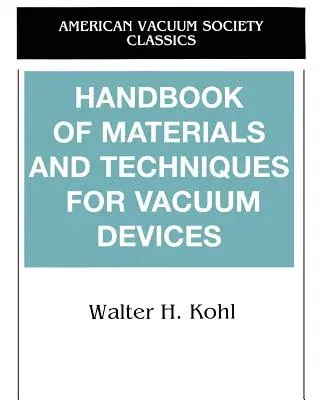Walter Kohl
(Author)Handbook of Materials and Techniques for Vacuum Devices (1995)Paperback - 1995, 8 May 1997

Qty
1
Turbo
Ships in 2 - 3 days
In Stock
Free Delivery
Cash on Delivery
15 Days
Free Returns
Secure Checkout
Part of Series
Avs Classics in Vacuum Science and Technology
Part of Series
American Vacuum Society Classics
Print Length
623 pages
Language
English
Publisher
American Institute of Physics
Date Published
8 May 1997
ISBN-10
1563963876
ISBN-13
9781563963872
Description
Product Details
Author:
Book Edition:
1995
Book Format:
Paperback
Country of Origin:
US
Date Published:
8 May 1997
Dimensions:
25.25 x
17.98 x
3.38 cm
ISBN-10:
1563963876
ISBN-13:
9781563963872
Language:
English
Location:
Melville, NY
Pages:
623
Publisher:
Weight:
1115.84 gm

